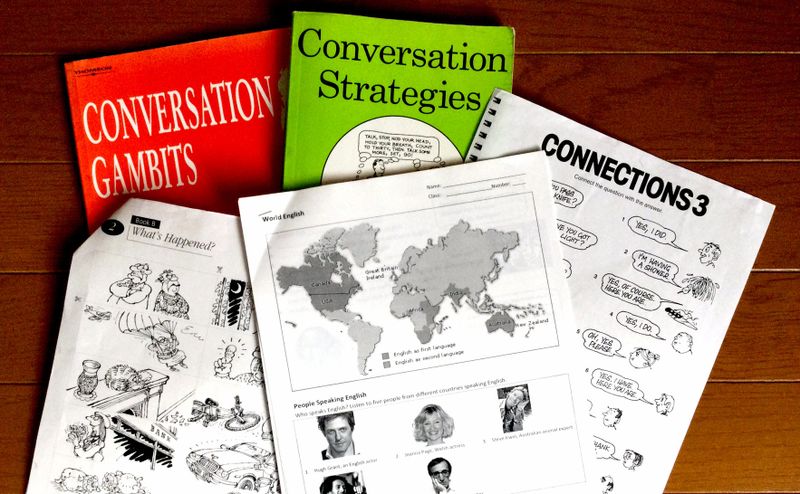Aug 17, 2023
A fresh perspective on English tutoring

Some of my vintage English teaching resources
Recently, a longtime friend opened a new cafe-bar space, and one of the ideas to use the lounge is to provide English language lessons to patrons. So he looked at me.
Returning to tutoring
While my first experience of English language teaching was adult English back in Canada, I transitioned to teaching in academic settings when I came to Japan. I’m a little out of practice when it comes to tutoring adult learners of the language. And to be frank, when I attempted tutoring English here in Japan a decade ago, I found that many of the adult students I picked up for trial lessons were simply looking for someone to talk to in English. There’s nothing wrong with that, but I’m a language teacher, not a counselor. I got a little burned out on tutoring and stopped.
A fresh perspective
The pandemic pushed a lot of educators around the world to adapt to remote teaching. Here in Japan, university instructors, eikaiwa workers, and school teachers met the challenge by sharing tools and practices through Online Teaching Japan, and I’m still using many of the great resources I learned from OTJ in my face-to-face lessons. So I figured I’d use these resources to add value to English tutoring for adults.
Getting the ball rolling
I made a Google Form to introduce the concept we have for the English lessons and gather some information about prospective students. Besides contact information and learning goals, we ask about hobbies and interests. This helps us personalize the lessons.
Previously when I tutored, the lessons were not on any cycle. The students requested topics and skills they wanted to study, and we met each week with no end goal in mind. This time, I thought I’d take a different tack, and break the lessons into units. So I offer five lessons at a time. At the end of each unit, we can take a break, or the student can do a unit with another tutor (there are two of us).
What do you know?
In the old days, I would do an interview test with level-check questions that progress through grammar, expression, and vocabulary based on Canada’s standards. That takes time and if the student is stressed or tired, it might not give accurate results. These days, there are dozens of free online tests that check learner levels based on CEFR which is commonly used in Japan. A really quick one you can do in a face-to-face lesson is Cambridge English - Test your English. A longer one which your student can do on their own time is available on Zengengo, a powerful language-teaching platform created by a team here in Japan.
Ironing out the wrinkles
Our first student is a local entrepreneur who volunteers to try our English tutoring concept. He’s focused on improving his spoken English for business contexts, so I pick up news stories or videos from news websites. He can hear and read vocabulary and expressions useful for encounters with English-speaking clients. Our lessons are pretty free-flowing, but we have a focus. At the end of each lesson, I send an email with a review using online interactives, listening, or reading.
Do you tutor English or another subject on the side? What do you find interesting or challenging about it?



0 Comments